- Home
- James Phelan
Red Ice Page 14
Red Ice Read online
Page 14
“That’s what I want to know too.”
“And you think that’s all that they were killed for?” Fox asked.
“The murder here, the attack at the embassy?”
“The assassin tore apart the ambassador’s safe at the embassy, we know that much,” she replied. “And he did the same here.”
“And this Durand guy?”
“He was the one who found the diary when they were renovating. It was hidden in the wall of Katya’s study.”
Fox looked at her, making the connection: “Stoeckl had used the room in the past.”
“Yes,” Zoe replied. “Durand couldn’t read Russian so he handed it to her, about six months ago, and then she gave it to her husband…”
Her phone bleeped.
“My guy is here.”
Outside the compound, Gammaldi and Kate were leaning against a Peugeot hatchback, holding take-away coffees.
Zoe took the keys from her plain-clothed colleague and motioned him to the Golf. He directed a few words her way; Fox caught ‘Vincent’ among them and remembered that Zoe had lost a friend just before, a colleague to both these cops before him. He looked away.
“Your friends can go with my colleague,” Zoe said.
“No way,” Gammaldi said. He stepped forwards like he was ready for a fist fight.
“Uh uh,” Kate said. She looked at Fox, resolute. “We’re sticking together.”
Brujon looked up at him, trusting.
“We can’t leave him either,” Gammaldi said.
Fox shrugged to Zoe and she gave a little, “Meh,” in resignation.
“But the dog goes with my colleague, no arguments.”
Zoe hopped into the Peugeot’s driver’s seat while the rest of them piled in.
“Where to?” Fox asked.
Zoe gunned the engine and took off with a wheel-spin.
“We need to talk to Durand and find out why he was meeting with your friend Renard. We need to see that diary…”
45
HIGH OVER KAZAKHSTAN
“I have a majority ready to move in the Duma,” Babich said, thinking about those in his country’s House of Reps who he could rely on. Men who had been waiting for their chance to lead for a long time, many of the current government who were fed up with being overlooked by their leadership. So he’d have to give away many ministerial positions, sometimes to unqualified men; so what? A small price to pay for loyalty. But. The fact that the Russian Ambassador in Paris had been ready to betray him … He’d need to make some phone calls when they reached Shanghai. Not many, but some, to those weaker ones, those who needed to be told first-hand how and when to step in line, to be called to action. The rest were smart enough to seize the oportunity. He just wished he could see the look on Putin’s face when it all went down. That would be … priceless.
Lavrov was looking at the list of political names they’d triplechecked, his smile fading. “Some…” he said. “Some are sceptical that you can do this.”
“Who?”
“Some. Not the list here … Outside the Duma.”
“Military?”
“No, those we need will follow … It is … The current government have been entrenched for so long now … So many of the business leaders are their guys … You know how it works.”
“But that was always the way, yes?”
Lavrov nodded.
“It was always the impossible long shot, for me or anyone,” Babich said, a reassuring pat on his man’s knee. “That is why we need this secret protocol, this treaty amendment, before we move. It is our weapon for us to show our people a new economic way forward, a new era—a change to how things have been done.”
Lavrov nodded, forced a smile, looked a little sick.
Babich was sitting up, his eyes alert. “We, as a country, have to move on, evolve, you see?”
“I see, I understand that…” Lavrov said. There was something else.
“But…?”
“I am not sure that they, the people, will.”
Ah, the people …
“They will come around, they will see sense,” Babich assured him. “Lavrov, you and I did nothing when the current regime came to power. We did nothing to stop them in 1999 … Now we get to right that wrong. The people want change. They yearn for the prosperity of which they’ve had only a taste.”
Lavrov nodded, but didn’t look convinced. Time to tell him.
Babich leaned forward. “What do you know about the secret protocol of which I speak?”
“Too little,” Lavrov said. He stammered in realisation that he was about to be entrusted with everything.
“You remember the secret protocol of our Great Patriotic War?” Babich said. “The Nazi pact?”
“The one you uncovered in the archives?”
“Yes.”
“But … that is old,” Lavrov said. “That was made public, long ago…”
“Well, my friend, what if I told you that in my search, when I had unfettered access to our nation’s most secret diplomatic archives, I found something else…”
Lavrov’s eyes brightened at the turn the conversation was taking.
“Yes, quite something indeed,” Babich said. He settled back and looked out at the view as the plane headed further east. Every mile travelled he felt safer. He was closer to home now, closer to his destiny. He looked back to Lavrov. “What do you know about the history of Alaska?”
46
PARIS
Fox sat in the back of the vehicle, next to Kate, who had just bandaged his forearm.
“It might need stitches,” she said. She stuffed piles of bloodied gauze into a plastic bag and was cleaning up a few scrapes on his hands.
“It’ll be all right,” Fox reassured, watching her work. Here they were, in the fire again because of his choices. But we don’t all choose, do we? Not the little things, not the variables, the reactions of others. Her eyes never looked up to meet his, they just kept steady on the task at hand. Whatever cleared this business up with Renard and Zoe and whatever the hell this diary meant, he’d do it. He’d do it for Kate. He’d do it to set them free.
“Ouch,” he said, as she pulled out a piece of windscreen glass from his left palm. She helped him into a fresh shirt, courtesy of the cop who’d provided the car.
“Great, I look like a Bolo,” he said, stretching out the snug black Lacoste polo.
“I was going to say an Abercrombie and Fitch model,” Gammaldi said over his shoulder from the front.
They hung on to their seats as Zoe cornered hard and powered up through the gears. Several cars tooted their horns as she wove through the traffic. It was an unmarked car and she didn’t bother with a police light on the roof. She was French—she probably drove like this when she was off duty, too.
Kate’s phone rang, its screen illuminated between them. She answered it and handed it to Fox.
“It’s Andrew Hutchinson,” she said, her hand over the microphone. “And when you were sightseeing back there, McCorkell left a bunch of messages for you to call him back asap.”
“Thanks…” Fox said. “Andy?”
Hutchinson sat up, the phone tight to his ear. He told Fox about the mid-air incident on the Gulfstream, then he listened as Fox relayed the story about the morning’s attack. He scratched at his leg, bandaged tight and elevated. The FBI Legal Attaché from Rome had arrived five minutes ago and set up a video conference so he was linked back to the Umbra task force in DC. A Navy representative was posted to act as a doorman when required as the conversations would contain some classified information. He was itching to get back out there, to drag that fucker Babich in, dead or alive.
“You’re sure it was a clean-up squad?” Hutchinson asked as Fox finished.
“They weren’t delivering the mail.”
“And they were Russian?”
“Yep.” Fox said. “Seriously, you think it was a garden-variety
home invasion? It was an eight-man special forces squad. The guy I questioned confirmed that they were there to kill us, Andy.”
Hutchinson looked at the computer screen, saw that McCorkell and Valerie were listening in intently.
“They were definitely from one of their Spetsnaz teams,” Fox said. “I recognised the training, but whether they are still on the payroll … Nah, I doubt it. They were slow. A little soft. Anyway, my new cop friend organised a chopper assault back at the house. They’ll get more answers.”
“If they’re still there.”
“I can’t imagine any of them having gone far in a hurry.” Fox paused on the line. His voice changed, lower register, quieter.
“Any word on your prisoner’s whereabouts?”
“We might have a lead but it’s still a bit sketchy. Bill and Valerie are working on confirmation.” Hutchinson saw them nod. Much as he wanted to be there in that room directing the play, he wanted even more to be in the field. Mobile, ready to strike wherever the son of a bitch showed up. Well, mobile as one could be with this leg …
Fox asked, “Bill, need anything else from me?” McCorkell looked to Valerie, and then turned back to the camera to Hutchinson and shook his head.
“Nup, just wanted to make sure you’re safe,” Hutchinson said. “Keep your head down, ya’ hear?”
After Fox disconnected he handed the phone back to Kate. She seemed uninterested, just scrolled through her messages. Fox was about to say something, when—
“We’re here,” Zoe said, as they pulled up abruptly outside a new-looking building. A giant glass pyramid, a good fifty storeys high. They all got out of the car. A valet took the keys, Zoe showed her ID and told him to keep it close.
“Le Project Triangle,” Zoe said as they entered the lobby. “The first skyscraper to be approved since Paris lifted a thirty-one-year ban on high-rise construction in the city centre.”
“Swiss architects Jacques Herzog and Pierre de Meuron,” Fox said.
Zoe looked at him, didn’t say anything.
“He likes to show off,” Gammaldi said. “A jack of all trades, he’s been called. An endless vessel of useless knowledge.”
“They designed Beijing’s bird’s nest Olympic stadium, too,” Fox said. Here, they’d come up with a building just as startling: an impressive glass and steel pyramid, looking from its side profile like a shark fin. “I’m amazed Paris has started to change her skyline.”
“Progress,” Zoe said, nodding to a guy who got into the lift with them—another plain-clothed cop, Fox thought, obviously one who’d been trailing Durand. “I assume that city planners think this is the way forward, to give our country some kind of future, some edge on the rest of Western Europe—given that some see it as a museum.”
Kate looked to Fox, he shook his head: Don’t bite.
“This looks more like something you’d find in Vegas,” Kate said, as the lift pinged and the doors opened to a party.
“Exhibition opening,” Zoe’s man said. They shuffled through the throng, met with another guy, who leaned in and whispered something to Zoe.
She turned to Fox. “Our man, Durand, is outside on the deck, black shirt.”
Fox saw maybe fifty guys in black shirts.
“You two stay here,” she said, moving off with Fox in tow.
“Of course,” Gammaldi said, his mood shifting as he caught a waiter passing with hors d’oeuvres.
“The man there; he is our architect,” Zoe said quietly to Fox, pointing out a thin guy in his mid-forties standing next to an even thinner woman. Both dressed in black, in a sea of dark colours, coiffed hair and tall drinks. They stood on an expansive deck that looked out across the roofs of Paris towards the Eiffel Tower. Fox bumped into Zoe as she stopped by the wide open doorspace. They waited a while in the architect’s eye-line, and when he finally looked over, Zoe flashed her suit jacket to reveal the holstered SIG.
Durand got the message and excused himself from his group. He approached them quickly.
“Please,” he said, with a covert motion back to his wife. “Not here. Not in front of her.”
47
PARIS
Four blocks away, Boris Malevich was following Renard on foot. He could count maybe four plain-clothed police between him and his guy. He felt nauseous. His two guys were on the other side of the road. Maybe if Renard got onto the Metro they could make a move, close in on the cops … It would be risky, but he didn’t need to check his watch to know that such risks would have to be taken.
At least things were happening fast now. After nearly two hours waiting outside the Le Figaro office, then following Renard to the big modern building where he’d met up with the architect … Malevich had to be careful; the architect had seen his face before. The day was heating up. The air was still and he felt suffocated. He loosened his collar. Walked faster.
What if he didn’t get a chance soon? His deadline was nearing … and it was so close now, his target, just a block ahead of him.
One of his guys had seen Durand hand the diary over at the pyramid building. Renard had put it in his satchel and Boris wanted to move in then, but the cops were there, watching. They must have worked out there was a connection between these guys and the ambassador’s death … Fuck it. He didn’t have time to figure it out, he just had to get the job done.
One of the cops looked over his shoulder and Malevich crossed the road, swapping places with one of his own men. Where were his back-up guys from Giverny? With another eight men they could take these cops and … Fuck it! He wrung his hands together, sweat coating his back. He took some deep breaths, felt his heart palpitating, and thought back to Katya, her sticky hot blood on his hands …
His phone rang.
“Where are you at?” The voice was scrambled to avoid detection on voice-recognition software, but he knew it was his handler.
“Paris,” Malevich replied, running across the street to make it before the traffic lights changed.
“I mean, do you have it?”
“Almost,” Malevich said. “Can you call some cops off a target for me?”
Malevich gave him a brief description of the cops following Renard, and the street address.
“I will take care of it. Just get what I need.”
“Of course.”
“I need it tonight, it must be tonight.”
“You’ll have it tonight,” Malevich replied, nodding to his guy ahead of him and switching places again. “Where do I meet you?”
“You are booked on an Air France flight at de Gaulle, leaves at two-thirty today.”
Malevich paused. That quick?
He said, “That’s not much time.”
“It is what it is—you knew you had until lunchtime today.”
Malevich waited for more; a destination, but none was forthcoming.
“But where am I meeting you?” he asked.
“Where the aircraft takes you.”
“Please…” He’d known Lavrov for so long. They’d not spoken in almost ten years, sure, but he trusted this man—and couldn’t he see that he was dedicated to this, all the way? That he was doing everything he was asked by the state, everything that was expected?
“Please?”
“I can’t tell you exactly. Just a country, yes?”
Then Malevich got it. The Americans, maybe others, might hear their phone call.
“China,” Lavrov said. “You’re flying to China.”
Malevich almost stopped in the street, but kept walking. The ambassador had been scheduled to go to Shanghai tonight. What the hell was going on?
“You’re in China?”
“You’ll be met at the airport when you touch down, it’s all arranged.”
“I’ll get there on time,” Malevich said, his pace slowing to a stop as they all waited to cross roads, still a block apart. He looked away when a cop turned towards him. Felt like throwing up. “Just make sure you’re t
here personally, and transfer what we’ve agreed.”
“Of course,” Lavrov replied. “I will contact you again in an hour.”
48
PARIS
Once they were far enough away from Durand’s wife, Zoe introduced herself properly. It didn’t put the guy at ease.
Zoe said to him, in English: “You are aware that Katya was murdered?”
Durand looked sick. He leaned against a nearby bar and signalled for a drink.
He replied in French, “I … I was told…”
Fox looked to Zoe. She translated, then asked Durand to talk in English.
Fox asked, “Did Renard mention it? Did he tell you?”
Durand looked him up and down. “Who are you?”
“I’m a reporter—”
“I can’t have anything in the press!” Durand’s face flushed.
He grabbed the bourbon the barman put down for him.
“Relax,” Zoe said. “He’s helping with my investigation.”
Durand gulped down half of his drink. “Who killed her?”
“We are working on that,” Zoe said. “Tell us about the diary.”
“I didn’t know what it was,” he said, continuing in English.
“It was an old hand-written journal, in Russian, and our builders found it during the renovation when—it doesn’t matter, does it? We found it in the wall. Hidden, unmoved for decades, I’d say.”
“And you gave it straight to Katya?”
“Sure,” he looked into his drink. Took another sip. “There was—you’d be surprised what we find, hidden in walls and under floorboards or ceilings, squirrelled away during one of the wars … The Nazis were particularly fond of looting buildings for valuables. They even stayed there in that building during the war, but evidently never found it.”
“Did you make copies?”
He looked at Zoe, puzzled.
“Copy the diary? Why would I?” he replied. “Like I said, it was in Russian. I took it to Kat, we had a drink and we got along. She asked me out for coffee later that week, it turned into lunch, a long lunch…”

 10
10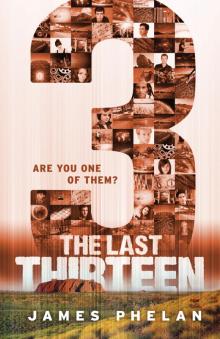 3
3 Survivor
Survivor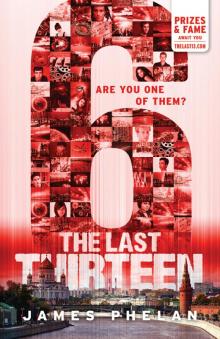 6
6 The Hunted
The Hunted Quarantine
Quarantine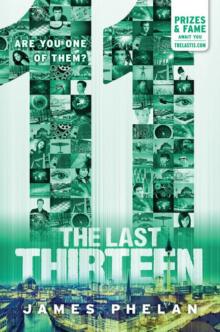 11
11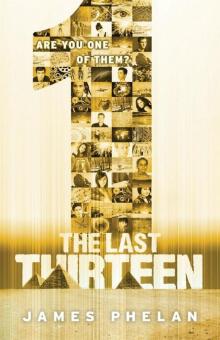 The Last Thirteen - 1
The Last Thirteen - 1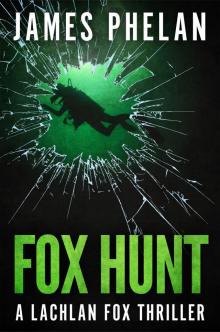 Fox Hunt
Fox Hunt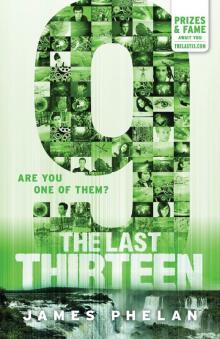 9
9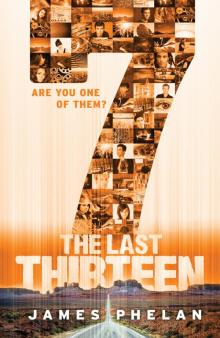 7
7 Patriot Act
Patriot Act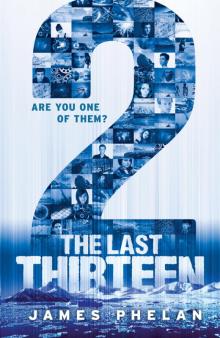 2
2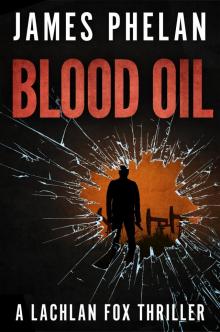 Blood Oil
Blood Oil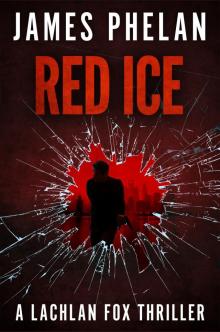 Red Ice
Red Ice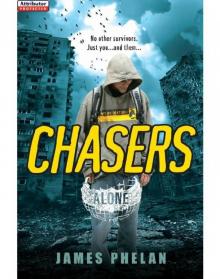 Chasers
Chasers Liquid Gold
Liquid Gold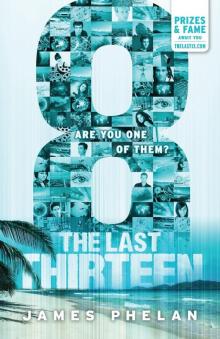 8
8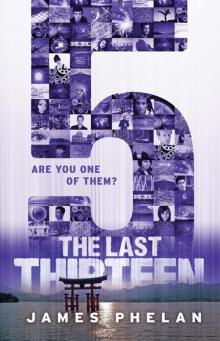 5
5 The Spy
The Spy Kill Switch
Kill Switch Dark Heart
Dark Heart